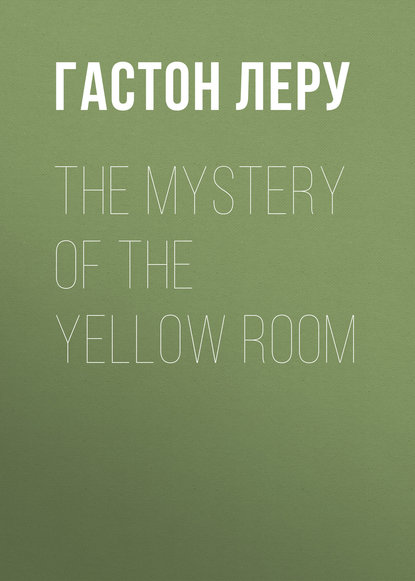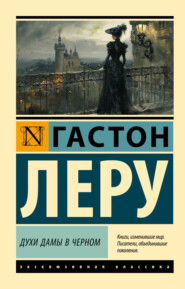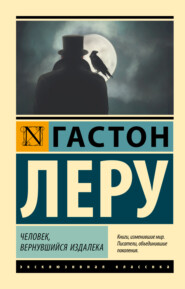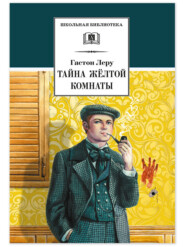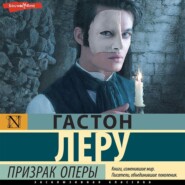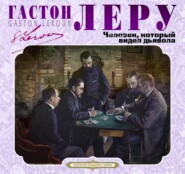По всем вопросам обращайтесь на: info@litportal.ru
(©) 2003-2024.
✖
The Mystery of the Yellow Room
Автор
Год написания книги
2018
Настройки чтения
Размер шрифта
Высота строк
Поля
He did not add “or it will be my death”; but I felt that the phrase trembled on his pale lips.
Rouletabille intervened:
“You are in a hurry, Monsieur; but I must speak with you. I have something of the greatest importance to tell you.”
Frederic Larsan interrupted:
“May I leave you?” he asked of Robert Darzac. “Have you a key, or do you wish me to give you this one.”
“Thank you. I have a key and will lock the gate.”
Larsan hurried off in the direction of the chateau, the imposing pile of which could be perceived a few hundred yards away.
Robert Darzac, with knit brow, was beginning to show impatience. I presented Rouletabille as a good friend of mine, but, as soon as he learnt that the young man was a journalist, he looked at me very reproachfully, excused himself, under the necessity of having to reach Epinay in twenty minutes, bowed, and whipped up his horse. But Rouletabille had seized the bridle and, to my utter astonishment, stopped the carriage with a vigorous hand. Then he gave utterance to a sentence which was utterly meaningless to me.
“The presbytery has lost nothing of its charm, nor the garden its brightness.”
The words had no sooner left the lips of Rouletabille than I saw Robert Darzac quail. Pale as he was, he became paler. His eyes were fixed on the young man in terror, and he immediately descended from the vehicle in an inexpressible state of agitation.
“Come!—come in!” he stammered.
Then, suddenly, and with a sort of fury, he repeated:
“Let us go, monsieur.”
He turned up by the road he had come from the chateau, Rouletabille still retaining his hold on the horse’s bridle. I addressed a few words to Monsieur Darzac, but he made no answer. My looks questioned Rouletabille, but his gaze was elsewhere.
CHAPTER VI. In the Heart of the Oak Grove
We reached the chateau, and, as we approached it, saw four gendarmes pacing in front of a little door in the ground floor of the donjon. We soon learned that in this ground floor, which had formerly served as a prison, Monsieur and Madame Bernier, the concierges, were confined. Monsieur Robert Darzac led us into the modern part of the chateau by a large door, protected by a projecting awning—a “marquise” as it is called. Rouletabille, who had resigned the horse and the cab to the care of a servant, never took his eyes off Monsieur Darzac. I followed his look and perceived that it was directed solely towards the gloved hands of the Sorbonne professor. When we were in a tiny sitting-room fitted with old furniture, Monsieur Darzac turned to Rouletabille and said sharply:
“What do you want?”
The reporter answered in an equally sharp tone:
“To shake you by the hand.”
Darzac shrank back.
“What does that mean?”
Evidently he understood, what I also understood, that my friend suspected him of the abominable attempt on the life of Mademoiselle Stangerson. The impression of the blood-stained hand on the walls of “The Yellow Room” was in his mind. I looked at the man closely. His haughty face with its expression ordinarily so straightforward was at this moment strangely troubled. He held out his right hand and, referring to me, said:
“As you are a friend of Monsieur Sainclair who has rendered me invaluable services in a just cause, monsieur, I see no reason for refusing you my hand—”
Rouletabille did not take the extended hand. Lying with the utmost audacity, he said:
“Monsieur, I have lived several years in Russia, where I have acquired the habit of never taking any but an ungloved hand.”
I thought that the Sorbonne professor would express his anger openly, but, on the contrary, by a visibly violent effort, he calmed himself, took off his gloves, and showed his hands; they were unmarked by any cicatrix.
“Are you satisfied?”
“No!” replied Rouletabille. “My dear friend,” he said, turning to me, “I am obliged to ask you to leave us alone for a moment.”
I bowed and retired; stupefied by what I had seen and heard. I could not understand why Monsieur Robert Darzac had not already shown the door to my impertinent, insulting, and stupid friend. I was angry myself with Rouletabille at that moment, for his suspicions, which had led to this scene of the gloves.
For some twenty minutes I walked about in front of the chateau, trying vainly to link together the different events of the day. What was in Rouletabille’s mind? Was it possible that he thought Monsieur Robert Darzac to be the murderer? How could it be thought that this man, who was to have married Mademoiselle Stangerson in the course of a few days, had introduced himself into “The Yellow Room” to assassinate his fiancee? I could find no explanation as to how the murderer had been able to leave “The Yellow Room”; and so long as that mystery, which appeared to me so inexplicable, remained unexplained, I thought it was the duty of all of us to refrain from suspecting anybody. But, then, that seemingly senseless phrase—“The presbytery has lost nothing of its charm, nor the garden its brightness”—still rang in my ears. What did it mean? I was eager to rejoin Rouletabille and question him.
At that moment the young man came out of the chateau in the company of Monsieur Robert Darzac, and, extraordinary to relate, I saw, at a glance, that they were the best of friends. “We are going to “The Yellow Room”. Come with us,” Rouletabille said to me. “You know, my dear boy, I am going to keep you with me all day. We’ll breakfast together somewhere about here—”
“You’ll breakfast with me, here, gentlemen—”
“No, thanks,” replied the young man. “We shall breakfast at the Donjon Inn.”
“You’ll fare very badly there; you’ll not find anything—”
“Do you think so? Well, I hope to find something there,” replied Rouletabille. “After breakfast, we’ll set to work again. I’ll write my article and if you’ll be so good as to take it to the office for me—”
“Won’t you come back with me to Paris?”
“No; I shall remain here.”
I turned towards Rouletabille. He spoke quite seriously, and Monsieur Robert Darzac did not appear to be in the least degree surprised.
We were passing by the donjon and heard wailing voices. Rouletabille asked:
“Why have these people been arrested?”
“It is a little my fault,” said Monsieur Darzac. “I happened to remark to the examining magistrate yesterday that it was inexplicable that the concierges had had time to hear the revolver shots, to dress themselves, and to cover so great a distance as that which lies between their lodge and the pavilion, in the space of two minutes; for not more than that interval of time had elapsed after the firing of the shots when they were met by Daddy Jacques.”
“That was suspicious evidently,” acquiesced Rouletabille. “And were they dressed?”
“That is what is so incredible—they were dressed—completely—not one part of their costume wanting. The woman wore sabots, but the man had on laced boots. Now they assert that they went to bed at half-past nine. On arriving this morning, the examining magistrate brought with him from Paris a revolver of the same calibre as that found in the room (for he couldn’t use the one held for evidence), and made his Registrar fire two shots in “The Yellow Room” while the doors and windows were closed. We were with him in the lodge of the concierges, and yet we heard nothing, not a sound. The concierges have lied, of that there can be no doubt. They must have been already waiting, not far from the pavilion, waiting for something! Certainly they are not to be accused of being the authors of the crime, but their complicity is not improbable. That was why Monsieur de Marquet had them arrested at once.”
“If they had been accomplices,” said Rouletabille, “they would not have been there at all. When people throw themselves into the arms of justice with the proofs of complicity on them, you can be sure they are not accomplices. I don’t believe there are any accomplices in this affair.”
“Then, why were they abroad at midnight? Why don’t they say?”
“They have certainly some reason for their silence. What that reason is, has to be found out; for, even if they are not accomplices, it may be of importance. Everything that took place on such a night is important.”
We had crossed an old bridge thrown over the Douve and were entering the part of the park called the Oak Grove, The oaks here were centuries old. Autumn had already shrivelled their tawny leaves, and their high branches, black and contorted, looked like horrid heads of hair, mingled with quaint reptiles such as the ancient sculptors have made on the head of Medusa. This place, which Mademoiselle found cheerful and in which she lived in the summer season, appeared to us as sad and funereal now. The soil was black and muddy from the recent rains and the rotting of the fallen leaves; the trunks of the trees were black and the sky above us was now, as if in mourning, charged with great, heavy clouds.
And it was in this sombre and desolate retreat that we saw the white walls of the pavilion as we approached. A queer-looking building without a window visible on the side by which we neared it. A little door alone marked the entrance to it. It might have passed for a tomb, a vast mausoleum in the midst of a thick forest. As we came nearer, we were able to make out its disposition. The building obtained all the light it needed from the south, that is to say, from the open country. The little door closed on the park. Monsieur and Mademoiselle Stangerson must have found it an ideal seclusion for their work and their dreams.
Here is the ground plan of the pavilion. It had a ground-floor which was reached by a few steps, and above it was an attic, with which we need not concern ourselves. The plan of the ground-floor only, sketched roughly, is what I here submit to the reader.
1. “The Yellow Room”, with its one window and its one door opening into the laboratory.





